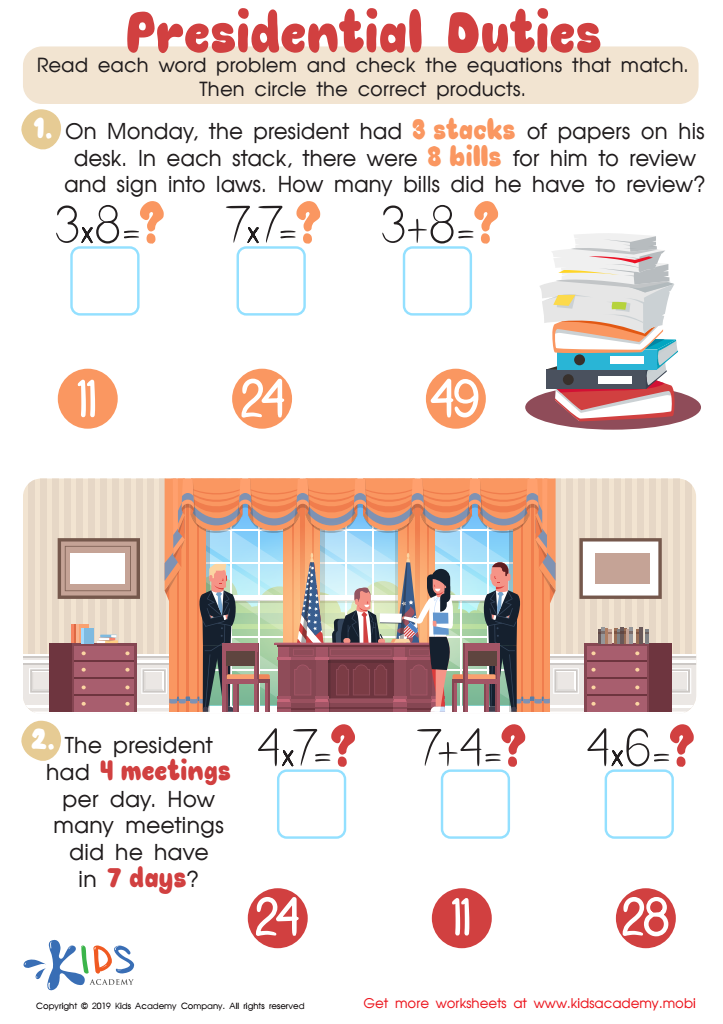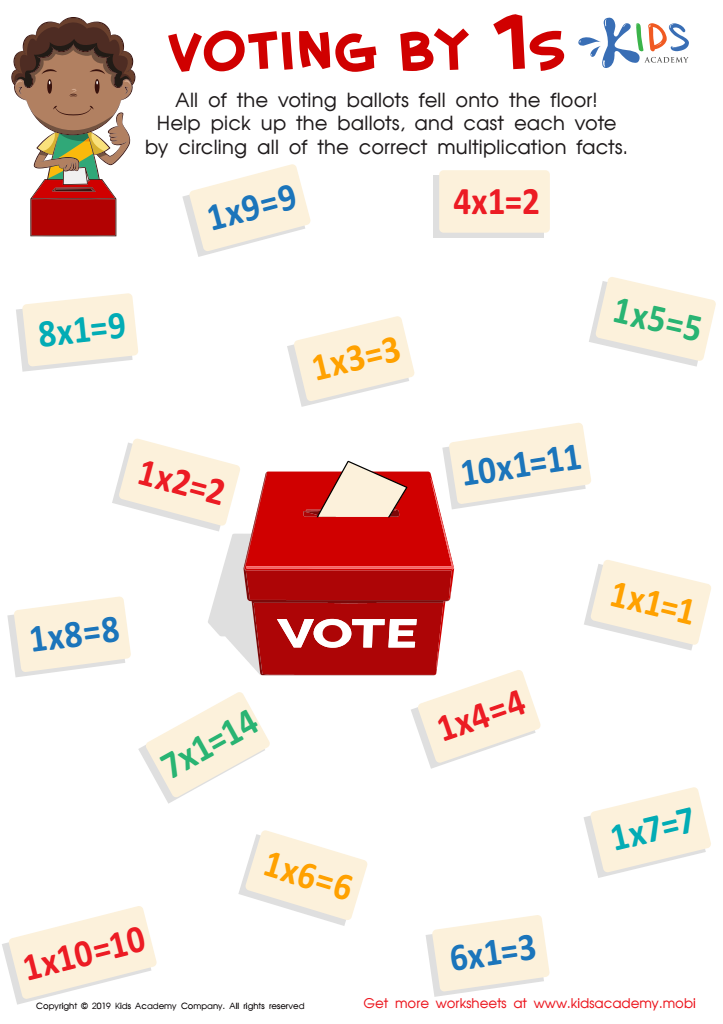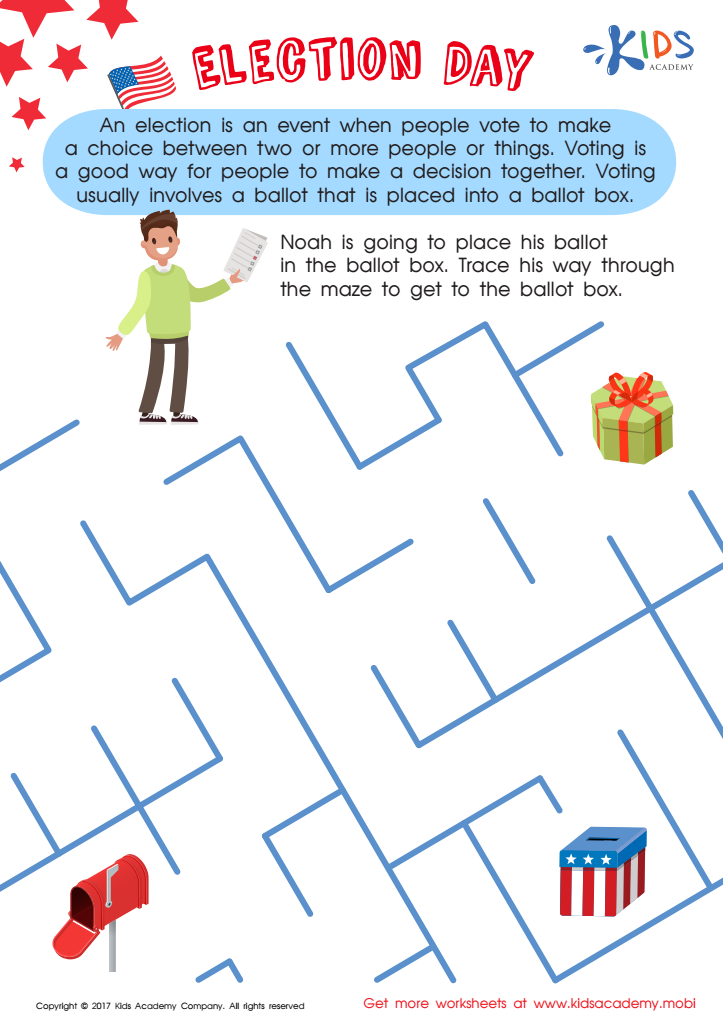Understanding democracy Social Studies Worksheets for Ages 7-9
3 filtered results
-
From - To
Unlock the secrets of democracy with our engaging Social Studies worksheets designed for ages 7-9! These thoughtfully crafted resources help young learners understand the fundamental principles of democracy, such as rights, responsibilities, and the importance of civic engagement. Our vibrant and interactive worksheets promote critical thinking and foster a sense of community among students, allowing them to explore concepts through fun activities and real-life scenarios. Perfect for classroom use or at-home learning, these worksheets will empower children to grasp the significance of their voices in a democratic society. Equip your students with the knowledge they need to become informed and active citizens!


Presidential Duties Worksheet


Voting by 1s Worksheet


Election Day Worksheet
Understanding democracy is crucial for children aged 7-9, as this formative stage lays the groundwork for developing informed, engaged citizens. Parents and teachers should prioritize Social Studies education about democracy because it cultivates critical thinking skills, encourages civic responsibility, and promotes respect for diversity.
At this age, children are beginning to grasp complex concepts, including fairness and the importance of voice in decision-making. Teaching them about democracy helps them understand that their opinions matter and that they can contribute positively to their communities. Lessons on democratic values, such as equality, justice, and participation, empower children to embrace active roles within their families and schools.
Moreover, fostering empathy and awareness of others’ perspectives is vital in a diverse society. When children learn about democratic principles, they become more tolerant and respectful toward differences, such as culture, beliefs, and lifestyles.
Finally, in an age where information is abundant yet often misleading, instilling strong democratic values helps children navigate complex social landscapes. Such foundational understanding equips them to question, analyze, and contribute thoughtfully to society, ensuring democracy serves everyone and flourishing communities can thrive generations to come. Parents and teachers are pivotal in guiding this journey towards responsible, democratic citizenship.
 Assign to My Students
Assign to My Students





















